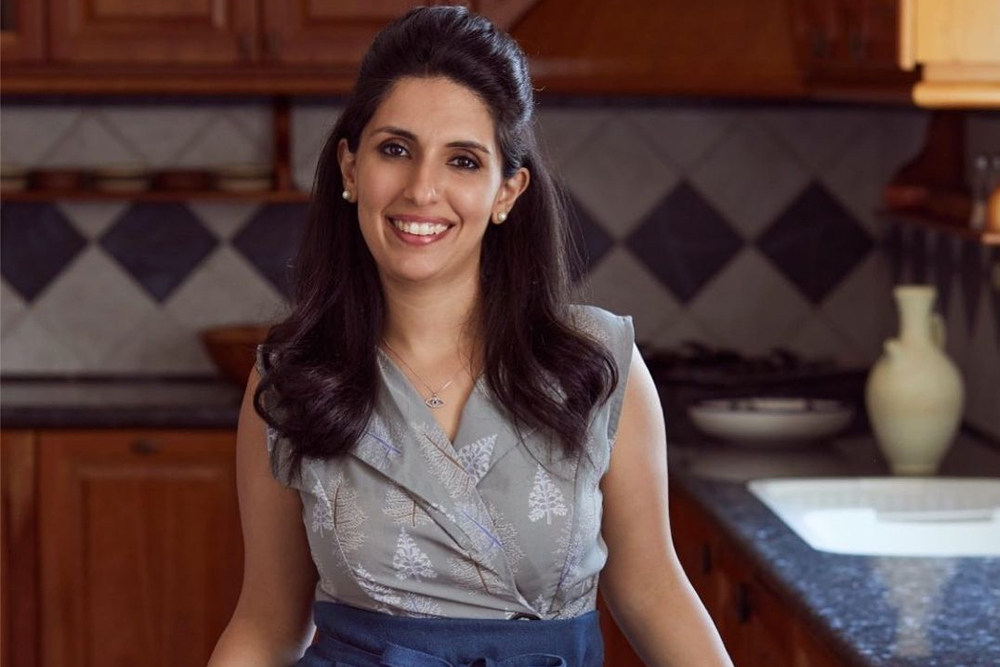
Everyone is looking for super-tasty food that can nourish the body after a Ramadan fast. Yet it can be difficult to come up with novel and interesting iftar recipe ideas your tribe will enjoy devouring every day. Enter Reem Kassis’ “The Arabesque Table: Contemporary Recipes from the Arab World,” a cookbook holding a one-of-a-kind collection of dazzling recipes. If your family loves traditional Arabic food infused with a creative and delicious modern twist, then it’s the perfect reading companion to have by your side.
The acclaimed Philadelphia-based author, who was established as a new contender in food writing with her 2017 book “The Palestinian Table,” has magically put together an assortment of 130 accessible home recipes, usefully organised by primary ingredient. So you’ll find chapters on eggplants and tomatoes, za’atar and sumac, pomegranates and lemons etc. The salad, main course and dessert gems are complemented with jaw-dropping photography, taken as she cooked all the dishes together with her mother during an extended pandemic stay at her childhood home in Jerusalem last summer. There are also some fascinating personal stories of her Palestinian family and insights into her experiences and influences.
In the extremely well researched book (two years’ worth), the 33-year-old Kassis, who grew up in a food-crazy home with excellent cooks as mentors, celebrates the evolution of an ancient, rich and impressively diverse cuisine and the stories of cross-cultural connection it communicates. And she weaves her historic examination and cultural knowledge with her stunning contemporary interpretations. So, as well as dishes from old Islam like Narjissiya and Makmoora, there are the meals many of us eat frequently today, presented in up-to-date and internationally inspired takes, including Caramelized Butternut Squash Fatteh with Za'atar and Flounder with Green Olives, Pistachios and Lemons. The Roasted Chicken with Pomegranate Molasses and Aleppo Pepper and Lentil and Vegetable Soup with Preserved Lemon are some of the other stellar serving ideas.
Additionally, Ouzi, made here with rice, lamb and vegetables and topped with nuts, must be one of the top picks for a festive Eid meal. For sweet lovers there are treats like the extremely popular Tahini Cheesecake, which comes with a chocolate glaze and sesame seeds, Mhalabiyeh Hibiscus Rose Tart and a three-ingredient halaweh. Filled with so many tantilising flavours from different parts of the Arab world, the book manages to seamlessly bridge past and present.
About Reem Kassis
Reem Kassis, mother of two daughters, led an impressive corporate life before making her love for food a career choice. After she left her home in Jerusalem when she was 17, she attended the University of Pennsylvania and graduated from Wharton’s The Huntsman Program in International Studies & Business. She then went on to study for graduate degrees at the same prestigious business school and the London School of Economics. Jobs at the global management consultancy McKinsey and the World Economic Forum followed for the ambitious go-getter.
During the first time she lived in the US and after she moved to London, Kassis was surprised that people hardly knew anything about Palestine, whether it was the cuisine or its people. And it was while writing her first book, which merited her the Guild of Food Writers First Book Award and a James Beard Foundation nomination for Best International Cookbook, that her priorities began to change.
“There are thousands of people who could do the job that I was doing,” she told British newspaper “The Guardian.” “But how many people could be the mother to my children that I am, and also safeguard this culinary treasure and share it with the world?”

















